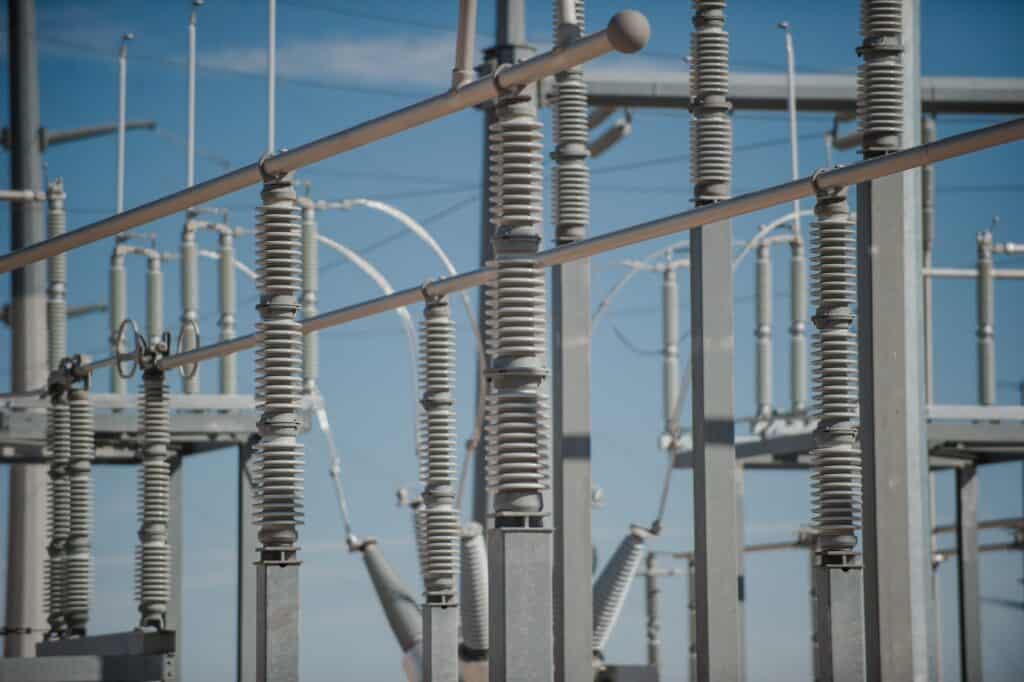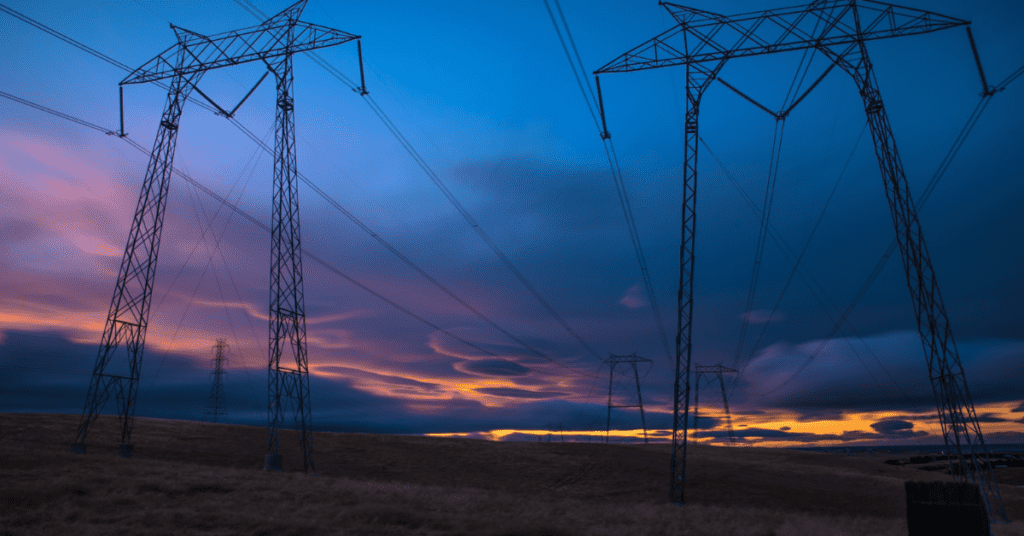Public utilities are essential for the smooth functioning of a city or town. They provide water, power, and other services people rely on daily. That’s why these jobs are some of the most coveted positions in the workforce. There are many jobs in the public utility industry, and each one is vital to the overall operation. If you have always wanted to be part of an important sector of your town or city, then a job in public utilities may be for you.
In this article, you will find out how many jobs are available in public utilities. We will also explore the different sectors and the best paying jobs in public utilities.
What do public utilities jobs pay?
Public utilities jobs boast an average salary of $56,100 per year, making them some of the highest-paying careers available. However, this field has many positions with varied salaries. For example, experienced safety engineers working for top companies can make as much as $87,000 annually while entry-level repair technicians only make about $26,000 per year on average. The public utilities industry comprises a number of occupations that offer competitive salaries.
Best paying jobs in public utilities
- Wind Turbine Technician $50,000
- Joruneyman Lineman $74,000
- Electrical Engineer $84,000
- Repair Technician $44,000
- Safety Engineer $87,000
- Plant Operator $37,000
- Valve Technician $54,000
- Utilities Manager $74,000
- Line Inspector $26,000
- Utility Worker $31,000
Different sectors in the public utilities industry
Public utilities such as water, electricity, gas, and trash collection benefit not only the citizens who receive them but have a positive knock-on effect on the entire US economy. To illustrate this, access to clean water is crucial for public health whilst having reliable power grid infrastructure helps businesses avoid losses due to power outages and maintain continuity.
Public utilities like electricity and water companies are vital for millions of Americans. The government regulates these organizations to ensure they run smoothly without any issues. As of October 2022, there were 675,775 employees nationwide who worked for public utility companies.
Public utilities, like water and electricity, play a crucial role in our daily lives in the United States. They make sure that our homes and businesses run smoothly. If it weren’t for public utilities, our lives would be much more complicated. The rules surrounding public utilities have been put in place to protect people from danger and preserve communities.
1. Electric Power Sector
If there were no electricity, the world would come to a screeching halt. It’s how we power our homes, stores, and workplaces. In America, everyone has access to public utility-supplied electricity. Also, the government carefully oversees the electric power industry so that customers always have dependable low-cost service options available to them. In the United States, the electric power industry is one of the oldest industries. After Thomas Edison invented the light bulb in 1879 this led to a dependable and inexpensive electrical grid. Presently, this sector is fundamental to our economy and employs millions across America. The distribution of electric power can be categorized into:
Generation of Electricity: In electric power plants, workers convert various energy sources into electricity. These include coal, nuclear fission, natural gas, hydroelectricity, and solar energy. As of 2020, more than 172 000 people in the United States work in the electric power generation sector.
Transmission & Distribution: The electric power transmission industry is vital to our society, providing electricity transmission and distribution services for residences and businesses. They also sell the power they generate to other companies who use it in their own facilities or resell it at a higher price.


Largest companies in America’s electric power transmission industry.
Here is a list of the biggest electric power transmission companies in the United States if you are looking for jobs in this sector:
Southern California Edison Company – Southern California Edison, the largest electric utility in California, is looking to hire more engineers and other positions. Based in Rosemead with over 8 million electricity customers and nearly 4.7 natural gas customers, this company employs over 20,000 people.
Exelon Corporation – Exelon Corporation is a Fortune 100 energy company that owns and operates power delivering more than 35,000 megawatts of electricity to customers across the United States. Headquartered in Chicago, Illinois, Exelon has over 32,000 employees working across its subsidiaries.
Florida Power and Light Company – Florida Power and Light Company are one of the biggest publicly-owned electric utilities in the United States. Headquartered in Juno Beach, Florida, this company generates, transmits, distributes, and sells electric power in Florida. With over 10 billion kilowatt-hours of electricity delivered each year, FPL is the largest company in Florida’s electric power industry.
Pacific Gas and Electric Company – Pacific Gas and Electric Company is another top electric power company in the United States. Its service area spans over 70,000 square miles across Northern and Central California. The company has over 20,000 employees and is headquartered in San Francisco, California.
Different types of jobs in the electric power sector.
There are many different career opportunities in the electric power industry, including:
-Power generation engineer: A power generation engineer is responsible for designing, operating, and maintaining all the electrical equipment in a power plant. They apply their science and engineering knowledge to convert raw materials into electricity.
-Power distribution engineer: A power distribution engineer is responsible for planning and supervising the construction of electrical networks to ensure that they are built safely, efficiently, and cost-effectively. They also maintain and repair these networks once they have been installed.
-Power transmission engineer: A power transmission engineer is responsible for designing, managing, and maintaining the electrical infrastructure that transmits electricity along high-voltage power lines. They work closely with power generation engineers, power distribution engineers, and other professionals in the electric power sector.
2. Water and Wastewater Systems Sector
The water and wastewater systems sector is also important. Some estimate that $1 trillion will be invested in the world’s water infrastructure over the next 20 years, making this sector a lucrative investment opportunity. In the United States alone, there are 7 million miles of water mains and 800,000 miles of sewer pipes.
Sewage removal is a massive operation, with thousands of employees nationwide. The businesses specializing in this area are responsible for constructing and keeping up water treatment plants and collecting and getting rid of wastewater. They also partner with local municipalities to ensure both regulations are being met and that the public’s health isn’t at risk. To stay ahead of the competition, sewage removal companies are constantly trying to refine their procedures while lessening their environmental impact.
Some of the biggest companies in this sector include:
1. American Water Works Company, Inc. – Based out of Voorhees, New Jersey, American Water Works Company is the largest investor-owned water and wastewater services company in the United States. They provide water and wastewater services to more than 15 million people across the country, with over 6,700 employees.
2. Aqua America Inc. – Based out of Bryn Mawr, Pennsylvania, Aqua America Inc. is a publicly-traded water and wastewater company that provides services to more than 3 million people in Pennsylvania, Ohio, North Carolina, Illinois, Texas, New Jersey, and Virginia. With over 3,000 employees across their subsidiaries and affiliates, Aqua America is a top player in the water and wastewater industry.
3. SUEZ North America – Based out of Wilmington, Delaware, SUEZ is a global water, waste, and energy management company that collects and treats wastewater for about 100 million people across the United States, Canada, and Mexico. With over 6,100 employees and $3 billion in revenues, SUEZ is one of the largest companies in its field.
4. Xylem Inc. – Based out of Rye Brook, New York, Xylem is a water technology company that provides products to the infrastructure, industrial, and residential markets. With over 12,000 employees globally and $4.7 billion in revenues, Xylem is a leader in the water and wastewater industry.
Types of jobs in the water and wastewater sector include:
1. Engineers – Water and wastewater companies need engineers who can help design and operate water treatment plants and keep up with ever-changing regulations. Many engineers also specialize in certain water treatment areas, such as mechanical or chemical engineering.
2. Project Managers – As water and wastewater systems are constantly being improved and expanded, project managers are needed to oversee these projects. Project managers must be able to communicate effectively with their team, as well as work with municipal officials, communities, and other stakeholders.
3. Plant Operators – Plant operators are responsible for using machines to clean and treat water. They also monitor levels of chemicals, bacteria, and other substances in the water to ensure that it meets regulatory requirements.
4. Chemists – Many plant operators and other employees in the water and wastewater sector need to have a strong knowledge of chemistry to best treat the water and remove contaminants. Chemists are also needed for research and development purposes, to help improve treatment methods and create new chemicals that can be used in the water process.
With a growing population, an aging infrastructure, and ever-changing environmental regulations, the water and wastewater sector is set to see continued growth in the years ahead. Whether you’re interested in engineering, project management, or chemistry, there are many exciting career opportunities in this sector. So if you’re passionate about keeping our water clean and safe, a water and wastewater industry career may be a perfect choice.


3. Natural Gas and Electric Systems Sector
Another important sector of public utilities is natural gas and electric systems. These companies are responsible for creating, delivering, and managing natural gas and electricity throughout the country. Natural gas and electric systems are crucial for power plants, local businesses, homes, and other facilities that rely on a steady supply of electricity and gas. Various sectors use natural gas for the following:
Electric Power – According to the EIA, natural gas was responsible for 30% of the electricity generated in 2017. Electricity generation is expected to grow by 2.3% per year until 2040. The thermal output from natural gas-fired plants can supplement district heating, water heater usage, and other industrial processes.
Industrial – The industrial sector is one of the largest natural gas consumers in the United States. According to the U.S. Energy Information Administration, as of October 2020, 33% of all natural gas consumed was used by industry. Among the reasons behind natural gas’ widespread consumption is that it’s an excellent fuel for process heating. Natural gas combustion produces minimal emissions, making it a good choice for consumers who want to heat large or small areas. Moreover, its versatility allows natural gas to power turbines, boilers, ovens, and other types of equipment found in industrial facilities. Choosing natural gas over other fuel options provides several advantages to businesses, which is why many are utilizing it for their process heating needs.
Residential – Natural gas is also heavily utilized in the residential sector. Many consumers choose natural gas for their heating and cooking needs because it’s inexpensive, convenient, and easy to utilize.
Commercial – The commercial sector also relies on natural gas for various needs. Among them are water heating, space conditioning, and food service. Natural gas is popular for these applications because it is convenient, reliable, and safe.


Top Employers in the Natural Gas and Electric Systems Sector
ExxonMobil – ExxonMobil is an energy company that operates across the world. With more than 70,000 employees and $30 billion in revenue, ExxonMobil is one of the largest gas and electric companies in the United States.
Southern Company – Based out of Atlanta, Georgia, Southern Company is an investor-owned utility that provides electricity to millions of customers across the Southeastern United States. With more than 22,000 employees and $20 billion in revenue, Southern Company is the largest natural gas and electric company in the region.
Chevron Corporation – Chevron Corporation is an international oil and gas company founded in 1879. With over 58,000 employees worldwide and $20 billion in revenue, Chevron Corporation is one of the largest natural gas and electric companies in the United States.
Types of Jobs Available in Natural Gas and Electric Systems
A wide variety of jobs are available in the natural gas and electric systems sector. Some of the most common include:
Engineer – Engineers have a variety of responsibilities in the natural gas and electric systems sector. They may be responsible for designing electrical grids, handling system maintenance, and troubleshooting problems.
Technician – Technicians work directly with installing, maintaining, and repairing natural gas and electric systems. They are typically responsible for the upkeep of equipment and troubleshooting any issues.
Project Manager – Project managers oversee the planning, implementation, and completion of large-scale projects in the natural gas and electric systems sector. They may be responsible for managing budgets, coordinating with vendors and partners, and ensuring that projects are completed on schedule.
Administrative Assistant – Administrative assistants support managers, engineers, and other professionals in the natural gas and electric systems sector. They handle office tasks such as scheduling meetings, preparing correspondence, and managing emails and phone calls.
Conclusion
Public utilities are vital to the operation of modern society. Whether we’re talking about gas, electricity, water, or telecommunications, public utilities are responsible for providing the services we depend on daily. As such, a wide variety of jobs are available in the natural gas and electric systems sector. There are opportunities for various professionals, from engineers and technicians to project managers and administrative assistants. So if you’re interested in working in the public utilities industry, start exploring your options today.

